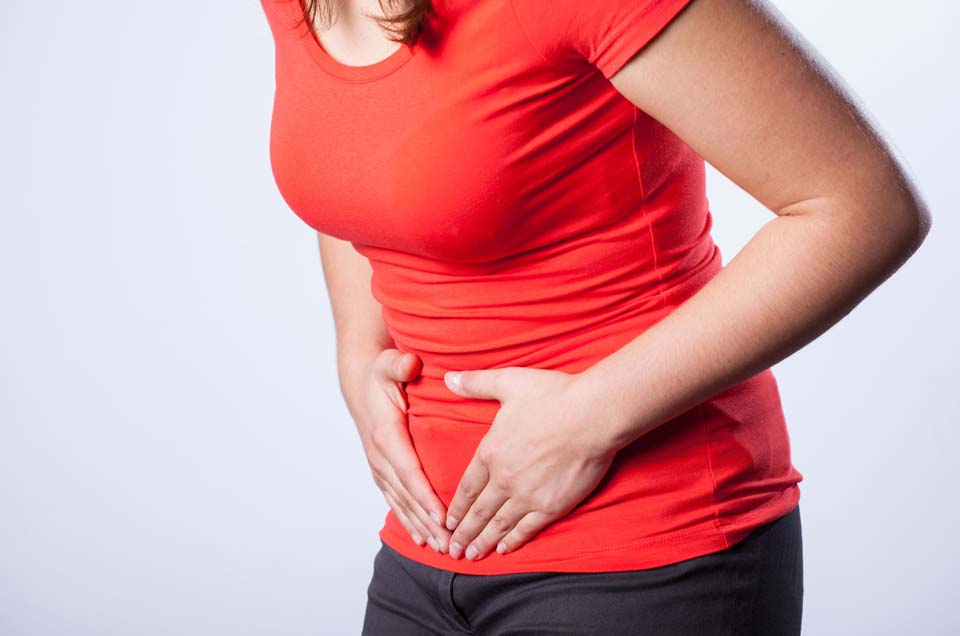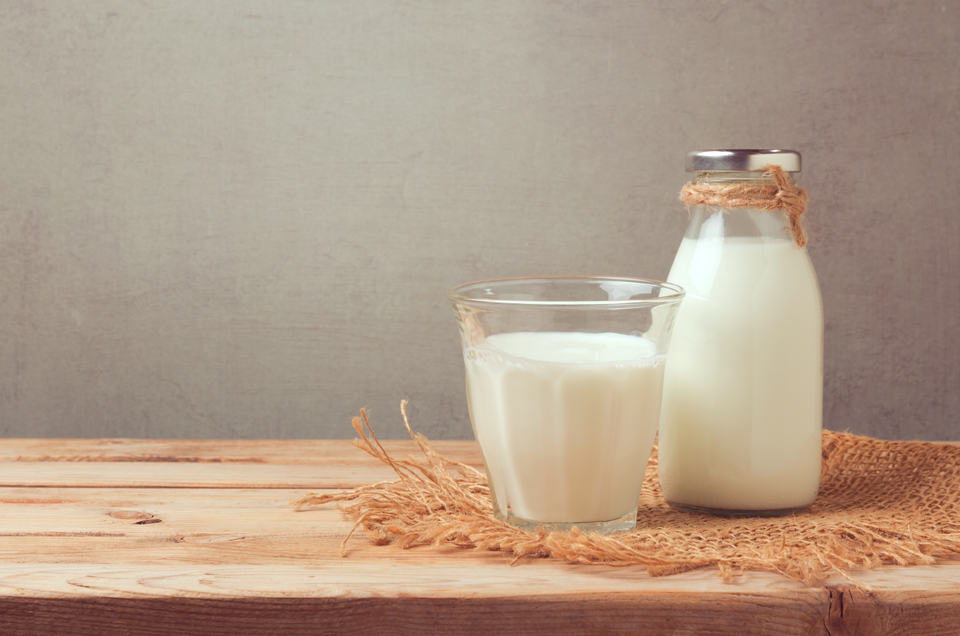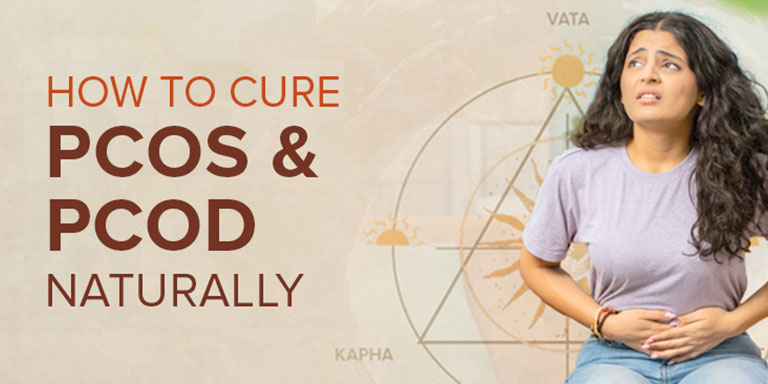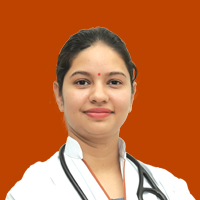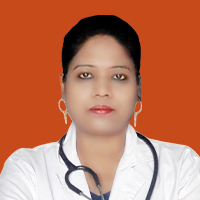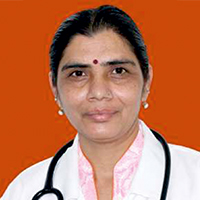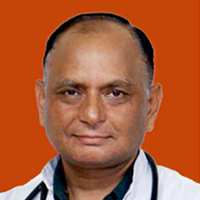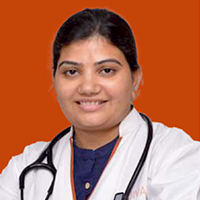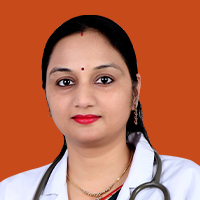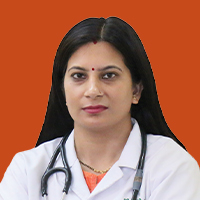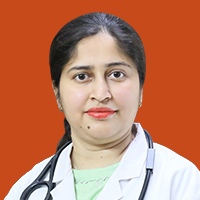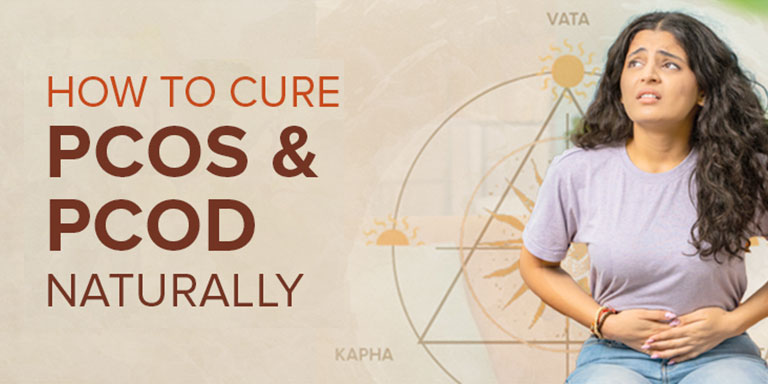 What is PCOD and PCOS?
What is PCOD and PCOS?
PCOS (Polycystic Ovary Syndrome):
The condition results from increased Ama (toxins) in the reproductive system, which disturbs the functioning of reproductive organs like the ovaries. Accumulation of ama in the ovaries leads to cysts and hormonal issues.
The imbalance of vata and kapha doshas is also associated with PCOS, which has a central role in ‘PCOS treatment in Ayurveda’.
Symptoms of PCOS
Some of the common PCOS symptoms include:
- Irregular menstrual cycles
- Unexplained weight gain
- Acne
- Excessive hair growth
- Presence of multiple cysts on the ovaries
PCOD (Polycystic Ovary Disease):
Just like PCOS, PCOD is also linked to an imbalance of Vata and Kapha doshas. The only difference is that it is considered a less severe condition than PCOS. In PCOD, the ovaries start producing immature eggs, which form cysts over time.
Symptoms of PCOD
Similar to PCOS, its significant symptoms include:
- Irregular menstrual cycles
- Sudden weight gain
- Hormonal Imbalance
- Acne or Hairfall
- Presence of multiple cysts on the ovaries, but they may be less severe.
HOW TO CURE PCOS AND PCOD NATURALLY?
PCOD and PCOS Treatment in Ayurveda include four main components: Diet & lifestyle modifications, Panchakarma therapy, and Herbal support.
Diet Changes
‘Natural treatment for PCOS and PCOD’ is incomplete without a proper diet recommendation. According to Ayurveda, consuming natural, unprocessed meals helps balance doshas.
- Foods that Pacify Pitta: As Kapha imbalance is believed to be the root cause of PCOS and PCOD, it is recommended to incorporate foods that are light, warm, and simple to digest. Choose lean proteins, nutritious grains like quinoa and barley, and steamed veggies.
- Avoid refined sugars and carbs: Consuming foods rich in refined sugars and carbohydrates will likely increase Kapha dosha in the body and cause insulin resistance and weight gain. So, Ayurvedic experts recommend eating complex carbohydrates such as legumes and whole grains.
- Include Astringent and Bitter Tasting Foods: Astringent and bitter foods are known to lower kapha dosha while keeping the metabolism sound. Some examples are Turmeric, fenugreek, and bitter gourd.
- Consume Healthy Fats: Eat foods high in healthy fats, such as almonds, flaxseeds, and ghee, to support hormone synthesis and balance.
Herbal Treatments
Doctors may prescribe medications that temporarily reduce the symptoms, but how to cure PCOS permanently? Ayurveda has got the precise solution!
There are many Ayurvedic herbs that are well-known for supporting hormonal balance and improved reproductive health. Some of them are:
- Ashwagandha: Being a herb known for its adaptogenic properties, Ashwagandha helps reduce stress and balance hormones.
- Shatavari: Shatavari is a popular herb for supporting reproductive health that also helps regulate menstrual cycles.
- Turmeric: Adding Turmeric to your diet provides anti-inflammatory benefits and aids in detoxifying the body.
- Triphala: This well-known concoction of three fruits facilitates healthy detoxification and digestion.
- Cinnamon: A widely used spice in Indian households, but a few know its importance! This helps in regulating blood sugar levels and improving insulin sensitivity in the body.
Panchakarma Therapy (Detoxification)
Panchakarma is considered an effective PCOS Treatment in Ayurveda, which involves multiple therapies that help remove toxins and purify the body while balancing the aggravated doshas.
- Vamana (Therapeutic Emesis): This treatment is used to eliminate Kapha toxins accumulated in the body.
- Virechana (Purgation): A method to cleanse Pitta toxins from the liver and gastrointestinal tract.
- Basti (Enema Therapy): It is specifically beneficial for Vata imbalances; Basti involves herbal enemas to cleanse the colon and improve reproductive health.
- Nasya (Nasal Administration): It helps clear toxins from the nose, head, and neck regions and balance hormones.
Lifestyle Modifications
Maintaining a healthy lifestyle is crucial for PCOS and PCOD management.
- Regular Exercise: To maintain a healthy weight and enhance insulin sensitivity, engage in moderate exercise like yoga, walking, or swimming.
- Stress reduction: Stress plays a center role in hormonal imbalance. Techniques like mindfulness, pranayama, and meditation can help lower stress.
- Adequate Sleep: To maintain hormonal balance and general health, you should get 7-8 hours of healthy sleep every night.
Frequently Asked Questions:
Is PCOD and PCOS the same?
Although the symptoms are usually the same. In PCOS, the endocrine issues cause the ovaries to produce excess androgens, leading to cyst formation, irregular periods, hirsutism, and a higher risk of metabolic disorder.
Whereas, in PCOD, the ovaries release immature eggs, leading to hormonal imbalances and swollen ovaries, with symptoms like irregular periods and mild weight gain. It has less severe symptoms than PCOS.
Can women with PCOS get pregnant?
Absolutely. While PCOS can make ovulation irregular, many women with PCOS conceive naturally. Talk to Jiva's doctor about the best course of action for you.
Can sex cure PCOS?
No, having sex cannot cure PCOS. However, a healthy sexual life can contribute to a balanced lifestyle that helps treat PCOS symptoms over time.
Can PCOS cause hair loss?
PCOS causes excess androgen or male hormone levels in the female body, contributing to hair loss and issues like manly hair growth on other parts of the body.
Does PCOS cause weight gain?
PCOS can disrupt your metabolism, increasing the chance of weight gain. That’s why it's essential to stick to an exercise routine and a balanced diet.
How to reduce AMH levels in PCOS?
Although PCOS can cause elevated levels of AMH (Anti-Müllerian Hormone), there is currently no known method for directly lowering them. Focusing on managing PCOS through diet, lifestyle changes, and medication can indirectly improve your overall reproductive health.
Contact your nearest Jiva Clinic to get the best ‘PCOS treatment in Ayurveda’. With over 1.5 million patients consulted, our specialized doctors understand your concern and analyze the root cause like no other.



